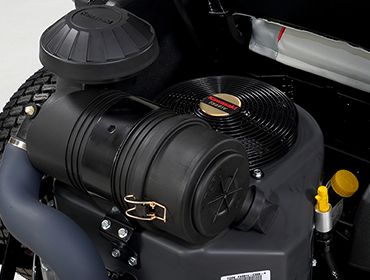What's the Deal with Mower Horsepower?

With over ten different zero turn mower brands in New Zealand, and around five different engine types, it’s easy to start by looking at horsepower. But these days horsepower is a very confusing and ambiguous measure of not only power, but how that power translates onto your lawn being cut.
A Bit about Horsepower (hp)
Horsepower as the name suggests is a measure of power. It hails back to the 18th century and was originally used to compare the power of draft horses to the new fad called the steam engine.
The mechanical horsepower / imperial horsepower is the equivalent power to 746 watts. It is typically only used in the mechanical world – people would look at you rather funny if you told them your microwave was 1.5hp!
Which mower is right for your property? Find out everything you need to know before you start. Get your free guide now.
Engine Horsepower Ratings - Here’s Where It Gets Tricky.
There’s a heap of engine brands out there – but for now we’re going to stick with two comparisons – Briggs & Stratton and Kawasaki.
We could get very technical with power curves and other technical rating information, but for now let’s compare the basic specifications two particular engines - Briggs & Stratton 44T9 Commercial Series and Kawasaki FR651 Series Engines – both very common engines found on zero turn mowers.